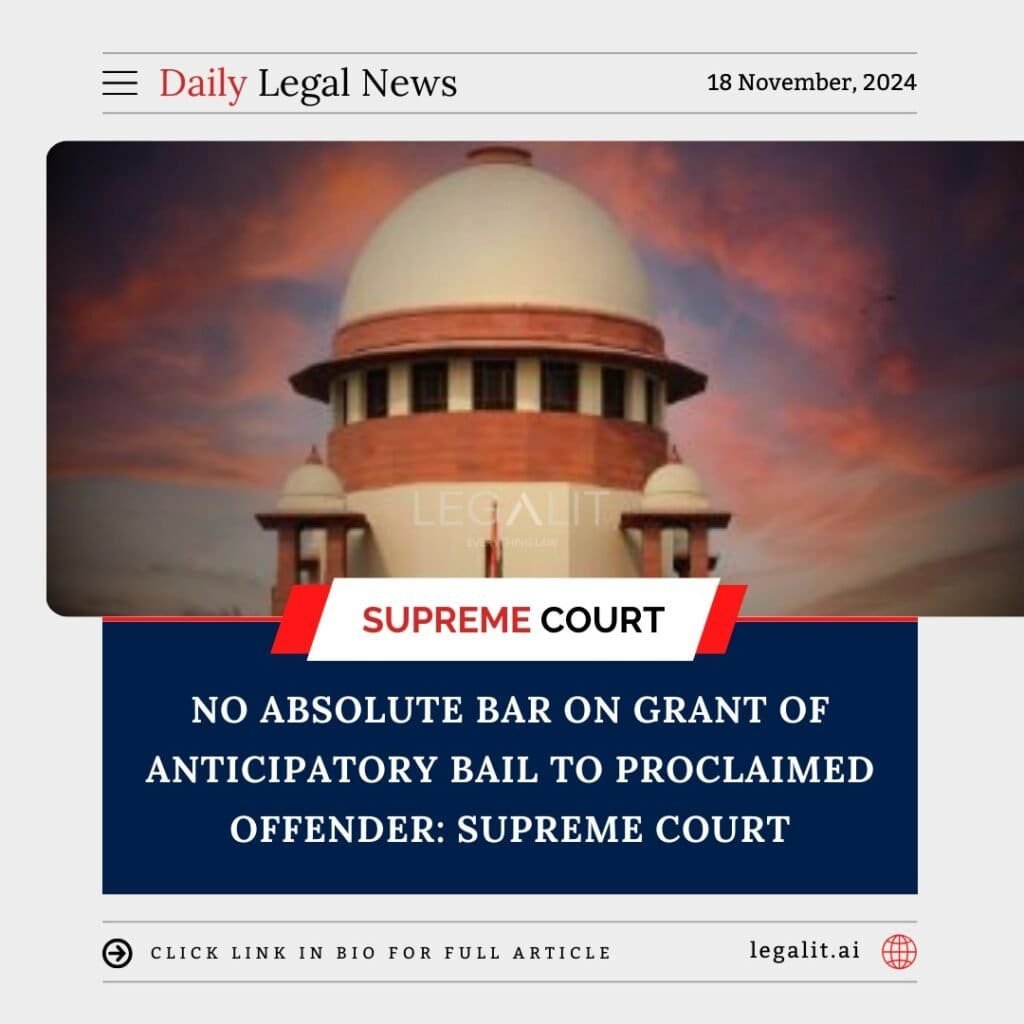
The Supreme Court of India has ruled that there is no absolute bar on granting anticipatory bail to a proclaimed offender. This judgment comes as a significant development in the interpretation of anticipatory bail provisions under the Criminal Procedure Code (CrPC).
Background:
The case before the Supreme Court involved a person who was declared a proclaimed offender under Section 82 of the CrPC, which relates to individuals who fail to appear before the court despite being summoned. The applicant in this case sought anticipatory bail, which would prevent his immediate arrest before trial.
The lower courts had rejected his plea, citing that once an individual is declared a proclaimed offender, they are not entitled to anticipatory bail. However, the Supreme Court intervened and clarified its stance on this matter, emphasizing that there is no blanket ban on granting anticipatory bail to such individuals.
Court’s Rationale:
The Supreme Court observed that while the declaration of a person as a proclaimed offender is a serious matter, the CrPC does not impose an absolute bar on granting anticipatory bail in such cases. The Court acknowledged that the decision to grant or deny anticipatory bail should be based on the facts of each individual case, including factors such as the nature of the offense, the applicant’s conduct, and whether they are likely to appear for trial.
The ruling indicated that anticipatory bail can be granted even to proclaimed offenders in exceptional cases, where the court is convinced that the individual is not a flight risk or a threat to the administration of justice.
Legal Implications:
- Anticipatory Bail in Exceptional Circumstances:
The judgment sets a precedent that anticipatory bail can be granted to a proclaimed offender in appropriate circumstances, such as when the applicant demonstrates that they are willing to cooperate with the legal process. - Court’s Discretion in Granting Bail:
The Court emphasized that bail decisions should be taken on a case-by-case basis. It reiterated that courts must carefully evaluate whether the applicant is likely to evade trial or engage in any unlawful activity. - Clarification of Legal Provisions:
This ruling provides clarity regarding Section 82 of the CrPC, clarifying that there is no absolute prohibition on granting anticipatory bail to proclaimed offenders, and it should be decided on the merits of each case.
Conclusion:
The Supreme Court’s judgment effectively softens the earlier rigid stance on anticipatory bail for proclaimed offenders, affirming that it is not an automatic denial but depends on the specific circumstances of the case. This ruling is expected to impact the handling of similar cases, where accused individuals, despite being proclaimed offenders, may be granted anticipatory bail if deemed appropriate by the court.